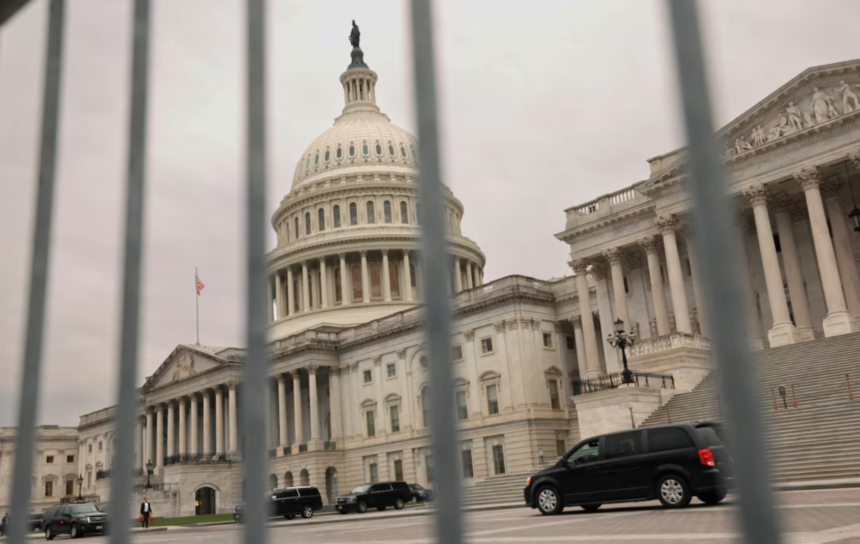The U.S. Senate passed a crucial government funding bill early Saturday morning, narrowly averting a government shutdown that could have disrupted essential services and wreaked havoc on the holiday travel season. The bill, approved by a bipartisan 85-11 vote, was passed just 38 minutes after the previous funding package expired at midnight (0500 GMT). With the Senate’s approval, the bill now heads to the White House, where President Joe Biden is expected to sign it into law.
The legislation had already cleared the Republican-controlled House of Representatives earlier in the week with bipartisan support, marking a significant step toward maintaining government operations through March 14, 2025. In addition to extending funding, the package allocates $100 billion for disaster relief and $10 billion for farmers, while also extending farm and food aid programs set to expire at the end of the year.
The late-night vote came after a whirlwind week in Congress, with major tensions and political maneuvering, including a dramatic clash between President-elect Donald Trump and his billionaire ally Elon Musk, who opposed an earlier bipartisan deal. Despite their objections, the final version of the bill managed to exclude provisions that Democrats had championed, such as a pay raise for lawmakers and stricter regulations on pharmacy benefit managers.
The funding bill also sidestepped Trump’s controversial demand to raise the debt ceiling ahead of his inauguration. The federal government, already burdened with a $36 trillion debt, requires new authorization to continue borrowing past the middle of next year. However, the issue of raising the debt ceiling is expected to resurface in January when Republicans gain more influence in Congress.
The Impact of a Shutdown:
A government shutdown would have had far-reaching consequences, affecting everything from law enforcement to national parks, and causing disruptions for millions of federal workers. Industry groups warned that a shutdown could cost airlines, hotels, and other businesses up to $1 billion per week, with significant disruptions expected during the busy Christmas travel period. Airport authorities even cautioned travelers about long lines and delays.
Political Tensions and Delayed Decisions:
The funding bill was a compromise after an earlier version fell apart following criticism from Trump and Musk, who objected to several unrelated provisions. Republicans ultimately stripped most of these elements from the bill, including a provision that would have restricted investments in China—an issue closely linked to Musk’s business interests.
Democrats, however, secured some of their objectives, preventing Republicans from enacting a debt-ceiling hike that could have facilitated tax cuts for corporations. House Democratic Leader Hakeem Jeffries expressed cautious optimism, highlighting that his party had successfully advanced key provisions, while also signaling that there was more work to be done in the new year.
Looking Ahead:
With the government funding bill now on track for implementation, attention turns to the looming challenges of the debt ceiling debate and fiscal policy. Critics, including Representative Rich McCormick, expressed concerns that the bill does little to address the nation’s mounting debt and long-term fiscal stability. Meanwhile, Republicans are expected to push for more significant changes when they take control of both chambers of Congress in January.
As lawmakers prepare for the next round of budget negotiations, all eyes will be on President Biden’s response to the passing of the bill and the potential impact on the upcoming debt ceiling discussions.







